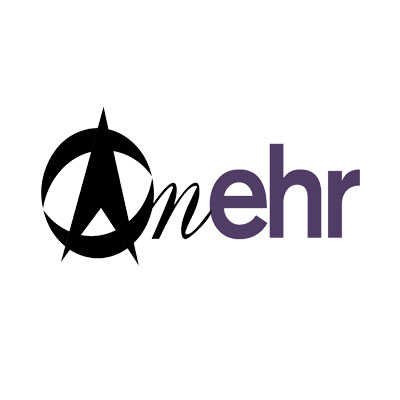Description

AnEHR

Hushmail
Comprehensive Overview: AnEHR vs Hushmail
Sure, here's a comprehensive overview of AnEHR and Hushmail:
AnEHR
a) Primary Functions and Target Markets:
AnEHR is an Electronic Health Record (EHR) system designed to facilitate the management of patient records and streamline healthcare workflows. Its primary functions include:
- Patient Record Management: Storing and retrieving patient data including medical history, treatments, medications, allergies, immunizations, and lab results.
- Clinical Workflow Automation: Streamlining scheduling, billing, and task management for healthcare providers.
- Regulatory Compliance: Ensuring compliance with healthcare regulations such as HIPAA in the United States.
- Interoperability: Facilitating the exchange of health information across different healthcare systems.
The target market for AnEHR includes:
- Small to medium-sized healthcare practices.
- Hospitals looking for a cost-effective EHR solution.
- Clinics and specialized healthcare services.
b) Market Share and User Base:
As of the last available data, AnEHR holds a modest market share compared to industry leaders in electronic health records like Epic and Cerner. Its user base primarily consists of independent practices and smaller healthcare networks focused on cost-effectiveness and ease of use. The competitive landscape in the EHR market is quite intense, with a high level of fragmentation.
c) Key Differentiating Factors:
- Cost-Effectiveness: AnEHR offers a more affordable solution compared to some larger EHR systems, making it attractive to smaller practices.
- User-Friendly Interface: Designed with a focus on ease of use, reducing the learning curve for healthcare providers and staff.
- Customization: Allows significant customization to cater to specific needs of different healthcare services and specialties.
Hushmail
a) Primary Functions and Target Markets:
Hushmail is a secure email service that emphasizes privacy and encryption. Its primary functions include:
- Email Encryption: Providing PGP (Pretty Good Privacy) encryption for secure communication.
- HIPAA Compliance: Offering services that ensure compliance with healthcare regulations regarding patient data protection.
- Encrypted Web Forms: Allowing users to create secure online forms for data collection.
- Two-Factor Authentication: Enhancing account security with an additional layer of protection.
The target market for Hushmail includes:
- Businesses and individuals requiring secure communication.
- Healthcare providers needing HIPAA-compliant email services.
- Legal professionals and others dealing with sensitive information.
b) Market Share and User Base:
Hushmail is a niche player in the larger email service market, competing against other secure email providers like ProtonMail and Tutanota. While not as widely used as mainstream email services like Gmail or Outlook, it has a strong presence among privacy-conscious users and professionals in sectors like healthcare and law.
c) Key Differentiating Factors:
- Focus on Security and Privacy: Strong emphasis on encrypted communications and data protection.
- Industry-Specific Solutions: Offers plans tailored to healthcare providers and other industries requiring compliance with privacy regulations.
- Ease of Use: Balances robust security features with a user-friendly interface, making it accessible even for non-technical users.
Comparative Overview:
While AnEHR and Hushmail operate in different domains, they share a commitment to data protection and compliance with industry-specific regulations. AnEHR focuses on healthcare record management, whereas Hushmail centers around secure communication. AnEHR might appeal more to healthcare providers looking for a comprehensive EHR system, while Hushmail serves those who prioritize privacy in email communications. Both products capitalize on niche markets within their respective industries, emphasizing ease of use and regulatory compliance as their key differentiators.
Contact Info

Year founded :
2019
Not Available
Not Available
Germany
http://www.linkedin.com/company/anehr

Year founded :
1999
+1 604-685-6937
Not Available
Canada
http://www.linkedin.com/company/hushmail
Feature Similarity Breakdown: AnEHR, Hushmail
As of my last update in October 2023, AnEHR and Hushmail serve different primary purposes—AnEHR is an electronic health records (EHR) system, while Hushmail is primarily known for secure email services. However, both products have features geared towards privacy, security, and compliance, particularly in fields such as healthcare, where data protection is crucial.
a) Core Features in Common:
-
Security and Privacy: Both AnEHR and Hushmail emphasize robust security and encryption. AnEHR ensures that medical records and patient data are stored and transmitted securely, complying with regulations like HIPAA (Health Insurance Portability and Accountability Act). Hushmail also offers encrypted email services to protect sensitive information, which is critical for healthcare communication.
-
User Authentication: Both systems typically require strong authentication protocols to access their services. This may include two-factor authentication to ensure that only authorized individuals can access sensitive data.
-
Compliance: Both platforms are designed to comply with regulatory requirements related to privacy and data protection, such as HIPAA in the United States. This ensures that users in the healthcare industry can use these services while maintaining regulatory compliance.
b) User Interface Comparison:
-
AnEHR: The user interface of AnEHR is usually designed to accommodate the workflow of healthcare providers, such as doctors, nurses, and administrative staff. It tends to emphasize ease of data entry, quick access to patient records, and integration with other healthcare systems. The UI is typically more complex, with dashboards that cater to various roles within a healthcare setting.
-
Hushmail: Hushmail's interface is closer to that of standard email services but with additional features focusing on security. Its design is usually straightforward and user-friendly, making it accessible even to those without technical expertise in encryption. The focus is on ease of communication and ensuring messages and attachments are securely encrypted.
c) Unique Features:
-
AnEHR: Some unique features of AnEHR could include specialized medical templates, decision support systems, and the ability to integrate with other healthcare technologies, such as telehealth systems, lab results, and pharmacy management systems. AnEHR may also offer features like appointment scheduling, billing, and patient portals that facilitate direct patient engagement.
-
Hushmail: Hushmail stands out with features like easy-to-use encrypted email services, web forms that are also encrypted for secure information gathering, and support for custom domain emails for businesses. While it is used in healthcare, it is also applicable in other sectors needing encrypted communication.
The primary distinction lies in their focus—AnEHR is tailored to healthcare workflows and comprehensive management of patient records, while Hushmail is a secure communication tool applicable across different industries, including but not limited to healthcare.
Features

Not Available

Not Available
Best Fit Use Cases: AnEHR, Hushmail
a) AnEHR
AnEHR is typically a specialized electronic health record (EHR) system, and its best fit use cases generally include:
-
Healthcare Providers: This includes hospitals, clinics, and private practices looking to manage patient records efficiently. An EHR system like AnEHR can improve healthcare delivery and streamline administrative tasks.
-
Specialized Medical Fields: Features such as customizable workflows, specialty-specific modules, and secure data handling make it suitable for practices in fields such as pediatrics, cardiology, or oncology.
-
Research Institutions: Organizations conducting clinical trials or medical research can benefit from AnEHR’s ability to manage large volumes of patient data and ensure compliance with data privacy regulations.
-
Telemedicine Providers: With the rise of telehealth services, telemedicine providers can use AnEHR to integrate remote patient monitoring and virtual consultations into their workflows.
-
Public Health Organizations: Entities focused on population health management need robust data analytics and reporting tools, which an EHR system like AnEHR can provide.
b) Hushmail
Hushmail is known for its secure email services and is often the preferred option in scenarios that prioritize privacy and security:
-
Healthcare Businesses: Similar to AnEHR, Hushmail is widely used in healthcare, particularly due to its HIPAA-compliant email service, which is necessary for secure patient communications.
-
Legal Firms: Law firms require secure communication channels to protect client confidentiality, making Hushmail a good choice for ensuring sensitive information is not compromised.
-
Financial Institutions: For banks, investment firms, and other financial service providers, Hushmail offers a way to safely communicate sensitive financial information with clients.
-
SMBs with Privacy Concerns: Small to medium-sized businesses that deal with sensitive data, such as personal client information, can use Hushmail to ensure their email communications are secure.
-
Individual Professionals: Professionals like therapists, accountants, or consultants who handle confidential client information and prefer encrypted communications can greatly benefit from using Hushmail.
d) Industry Verticals and Company Sizes
-
AnEHR:
- Industry Verticals: Primarily focused on the healthcare sector but applicable to any industry that requires rigorous data security and patient data management, such as pharmaceuticals or biotechnology.
- Company Sizes: Suited for small practices up to large-scale hospital systems due to its scalable nature. Smaller practices may benefit from its customizable features, while larger institutions can leverage its robust data analytics and reporting capabilities.
-
Hushmail:
- Industry Verticals: Applicable to a broad range of sectors beyond healthcare, including legal, finance, and any industry where data privacy is critical.
- Company Sizes: Suitable for both individuals and organizations of varying sizes. Small businesses might find it more financially accessible, while larger companies benefit from its ability to maintain compliance and protect sensitive communications on a broader scale.
Ultimately, the choice between these tools depends on the specific needs regarding data management, regulatory compliance, communication security, and industry-specific requirements.
Pricing

Pricing Not Available

Pricing Not Available
Metrics History
Metrics History
Comparing teamSize across companies
Conclusion & Final Verdict: AnEHR vs Hushmail
To provide a conclusion and final verdict for AnEHR and Hushmail, it's important to evaluate these products based on their intended use, features, pricing, user experience, security, and support. This analysis will help determine which product offers the best overall value and provide recommendations for users deciding between the two.
a) Best Overall Value
The best overall value between AnEHR and Hushmail depends largely on the user's primary needs.
-
AnEHR: If the priority is managing electronic health records (EHR) and the product includes comprehensive features for healthcare providers such as scheduling, billing, and detailed patient record management, AnEHR could offer the best overall value for healthcare organizations.
-
Hushmail: Known for its secure email services, it might be the better choice if the focus is on secure communication, especially if HIPAA compliance is necessary. This makes Hushmail valuable not only to healthcare providers but also to users in other sectors where secure communication is crucial.
b) Pros and Cons
AnEHR:
- Pros:
- Comprehensive EHR management features tailored for healthcare settings.
- Integration capabilities with other health IT systems.
- Possibly includes patient portal functionalities.
- Cons:
- Might be more expensive due to extensive EHR functionalities.
- Can have a steeper learning curve for users unfamiliar with EHR systems.
- Focused on healthcare, thus less applicable outside this industry.
Hushmail:
- Pros:
- Strong emphasis on email security and privacy.
- HIPAA compliance is a significant advantage for healthcare providers.
- User-friendly interface and easy integration with existing email systems.
- Cons:
- Limited functionalities outside secure communication.
- Can incur additional costs if expanded to a larger organization setup.
- May require the use of another system for comprehensive EHR needs.
c) Recommendations
-
For Healthcare Providers: If the primary need is for a robust EHR system with secure communication as a secondary need, AnEHR should be explored for its comprehensive healthcare-specific features. However, if the main concern is secure communication and compliance with privacy regulations like HIPAA, coupled with basic EHR functionalities, Hushmail might be more appropriate.
-
For Other Industries: If the primary requirement is secure and private email communication, Hushmail is better suited due to its focus on security and ease of use.
-
Mixed Needs: In cases where both robust EHR functionalities and secure communication are crucial, the ideal solution might involve integrating both systems. This could offer comprehensive patient record management through AnEHR complemented by secure communication via Hushmail.
Ultimately, organizations and users should assess their specific requirements, including budgetary constraints, to make the most informed decision. Taking advantage of free trials or demo versions could be beneficial for getting a hands-on understanding of each product's strengths and weaknesses.
Add to compare
Add similar companies



